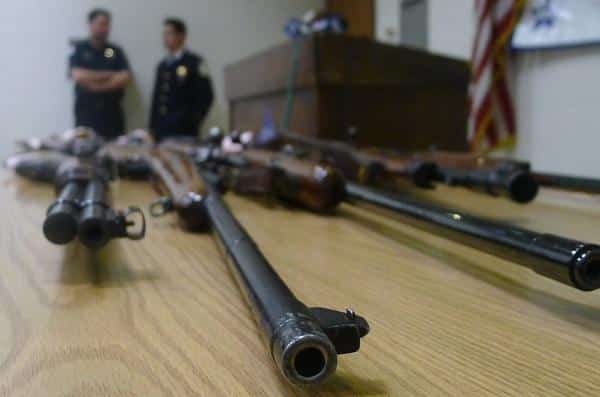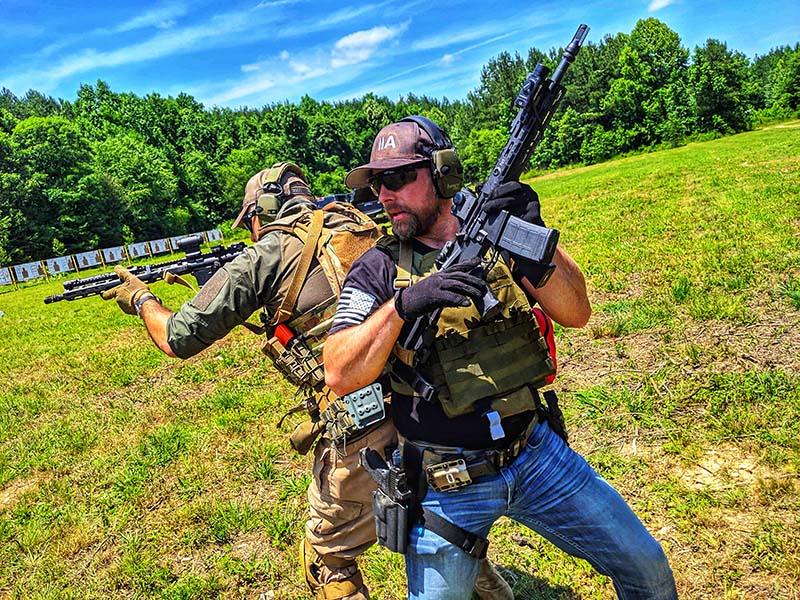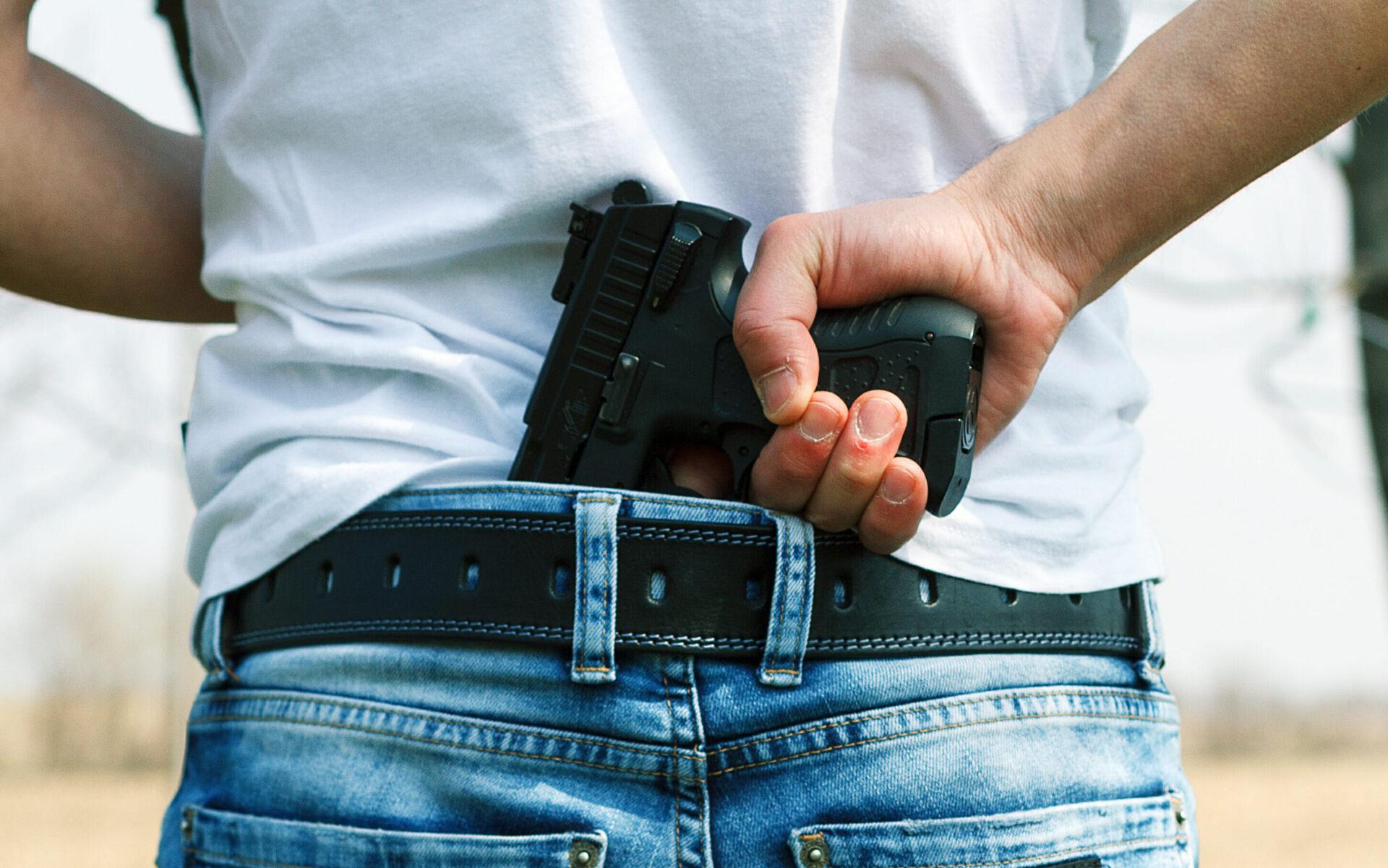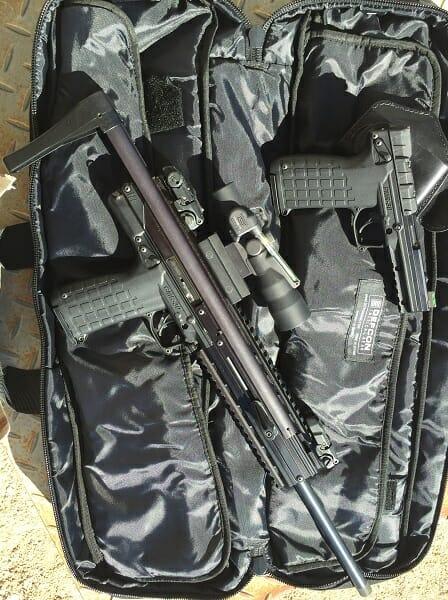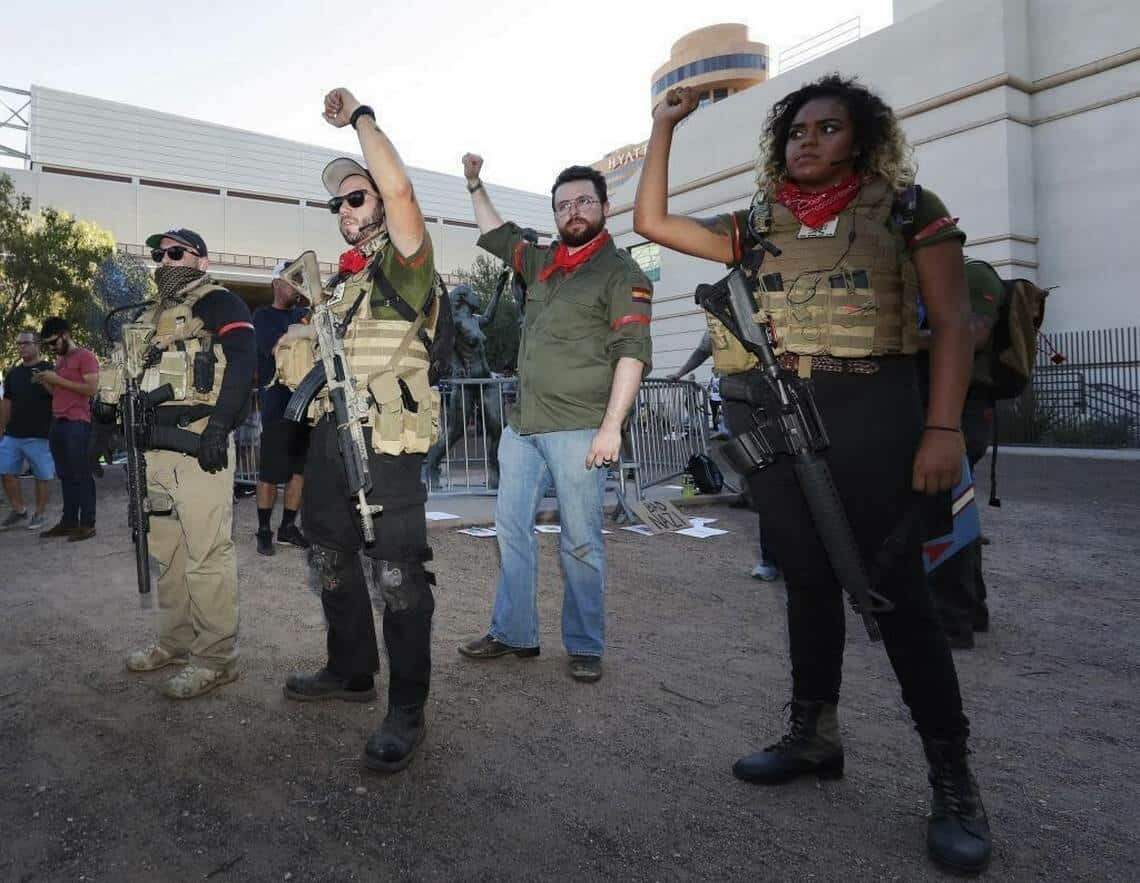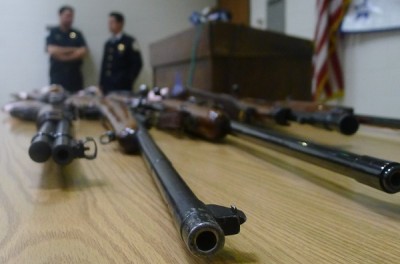
The confiscation of guns from citizens by police in the United States is more common than most people think. Recent news reports reveal that incidents of questionable firearms seizures occur all over the country — and are on the rise.
Just as disturbing, it is common for police to seize and keep weapons even if no criminal charges are filed, or if the case if dismissed.
Eric Lee of Dekalb County, Georgia, bought a gun because he was worried about break-ins at his furniture store. He was arrested one night outside his store for loitering and carrying a gun on his property. He had a permit.
“They (the police) just pulled in and said, ‘What is going on? What is going on? Hands up, Anybody have any weapon?’ I said I have a gun. They just grabbed me, took my gun and threw me in the car,” Lee said.
A judge dismissed the case and apologized, but Lee still doesn’t have his gun back. He has filed a federal lawsuit.
“He’s not looking to retire off this or harm the taxpayers, he is looking for some kind of accountability,” attorney Shannon Briley-Holmes told WSB-TV.
A Problem Across The Country
In Cleveland, Ohio, resident Derrick Washington had to sue the city to get his .38 caliber Taurus revolver back even though he had a concealed carry permit for the weapon. Officers took the gun from Washington on Feb. 11, 2013, but wouldn’t give it back under a city ordinance that allows police to keep a gun until a “court of competent jurisdiction” orders it returned.
Washington is particularly angry because prosecutors never filed charges against him. Police had arrested Washington for being intoxicated and carrying a gun. He just happened to be in a location where a shooting had occurred.
A police report actually stated: “Based on information received from arresting officers, as well as the fact that Washington was not involved in the felonious assault-shooting, (the prosecutor) ruled no papers against Derrick Washington (because of) insufficient evidence. As a result, no criminal charges will be brought against Derrick Washington.”
How to hide your guns, and other off grid caches…
His attorney, though, said he had not been drinking.
Police and prosecutors in Cleveland contend that a city ordinance gives them the power to confiscate and keep weapons. Gun rights activists note that the ordinance might actually violate a state law.
“It seems to me that Cleveland is stepping over the state law, yet again, with respect to firearms,” Jeff Garvas, the founder and president of Ohioans For Concealed Carry, told The Plain Dealer newspaper. “The city cannot have its own confiscation ordinance, as state law preempts it.”
Californians have to Pass Criminal Background Check To Get Guns Back
Washington is not the only person who has to sue to get guns back from authorities. There have been other incidents of questionable confiscation around the country.
An organization called the Calguns Foundation had to sue the cities of San Francisco and Oakland over letters to owners of confiscated guns. In a case called Churchill vs. Harris, the Foundation alleged that the letter law enforcement sent to owners of confiscated guns did not properly explain the process for getting a confiscated gun back. In June, a federal judge agreed with the Foundation and ordered the letter which was written by the California Department of Justice changed.
This lawsuit was sparked by a 2005 California state law that allows police to impound guns until the state Department of Justice certifies the owner is legally eligible to possess firearms. The law basically says that Californians have to pass a criminal background check to get their own guns back from the police.
Californians sometimes need to hire an attorney to get a court order to compel authorities to release firearms, California attorney Bruce Colodny noted. Such an effort can be time-consuming and costly. Colodny also noted that owners have to provide documentation of ownership such as a receipt to get their guns back.
Guns are often seized after domestic disputes or disputes with neighbors in California, Colodny wrote on his blog. Weapons are sometimes seized simply because somebody sees them and calls the police.
“Be discreet with firearms when you are loading or unloading your vehicle and when you are cleaning a firearm, to prevent observation by a neighbor or passerby who may overreact and call the police,” Colodny advised California gun owners.
San Francisco has a new high-capacity magazine ban that makes it illegal to sell guns with magazines with the ability to hold more than 10 rounds. The law also requires that citizens who already own high-capacity magazines turn them in to the police department within 90 days. Meanwhile, residents of New York City are being ordered to turn certain kinds of guns into the police or face confiscation. As reported by Off The Grid News, the NYC law applies to rifles and shotguns that hold more than five rounds. And in Connecticut, results must turn in any firearm that the state now considers an “assault weapon” that was not registered by Jan. 1. The guns cans be confiscated.
What To Do if Police Confiscate Your Gun
Fortunately, there are a number of steps that a citizen can take if police confiscate his or her gun. The main steps to take include:
- Get a document for a confiscated weapon from the police. Make sure the officers give you a document that describes the weapon and states it was taken from you.
- Inquire about the legal process for getting a weapon back and follow it.
- Contact gun rights groups or Second Amendment activists.
- Contact an attorney who is experienced in gun rights cases and is familiar with the laws of your state. Many states have laws that ban or limit such confiscation. Unfortunately police sometimes ignore such laws.
- Complain to law enforcement officials, prosecutors and elected officials such as county sheriffs. These individuals will sometimes give guns back just to avoid controversy.
Law Protects Gun Owners
The good news is that there are some efforts to curb gun confiscation taking place. A new state law in Arizona requires officers to give citizens a detailed receipt for confiscated guns.
Sign up for Off The Grid News’ weekly email and stay informed about the issues important to you


